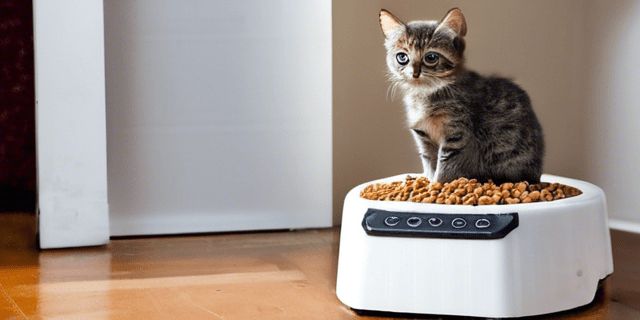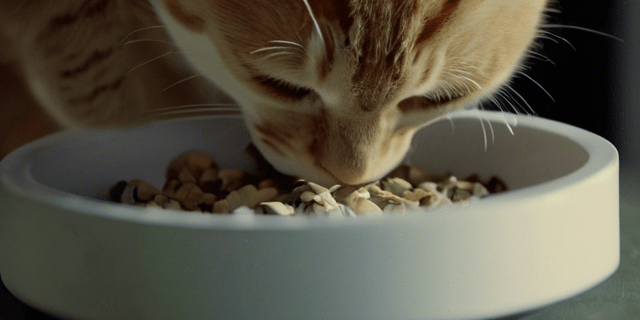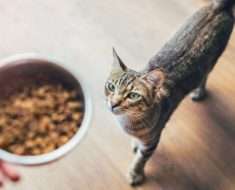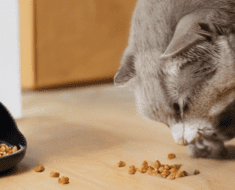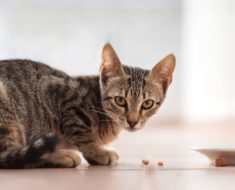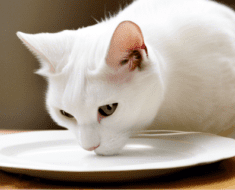To determine how much food to feed your cat, consult the feeding instructions on the cat food packaging and follow the guidelines provided. When it comes to feeding your cat, it’s essential to provide them with the appropriate amount of food to maintain their health and well-being.
Feeding your feline companion the right quantity and quality of food is crucial to prevent under or overfeeding, leading to various health issues. By adhering to the recommendations found on the cat food packaging, you can ensure you are providing your cat with the correct amount of food they require for a balanced and nutritious diet.
Key Factors In Cat Feeding
Feeding your cat the right amount of food is crucial for their overall health and well-being. Key factors that play a role in determining how much food you should feed your cat include age, weight, and health condition. For accurate guidance, consulting a veterinarian is highly recommended. They can assess your cat’s specific needs and provide personalized feeding recommendations.
When it comes to age, kittens require more frequent meals and a diet that supports their growth and development. As cats get older, their calorie needs may decrease, and they may require a diet that is appropriate for adult or senior cats.
Weight is another important factor to consider. An overweight cat may need portion control and a calorie-restricted diet, while an underweight cat may require higher-calorie meals to help them reach a healthy weight.
Additionally, your cat’s health condition should be taken into account. Cats with certain health issues, such as diabetes or kidney disease, may require a special diet to manage their condition.
Understanding Cat’s Nutritional Needs
Feeding your cat the right amount of food is essential for maintaining their health and well-being. Understanding your cat’s nutritional needs is crucial in determining how much food to feed them. Cats require a balance of essential nutrients to thrive, including proteins, fats, vitamins, and minerals. Proteins are the building blocks of their diet, supporting muscle growth and repair. Fats provide energy and help with nutrient absorption. Vitamins and minerals are necessary for overall health and immune function.
It is important to avoid some common dietary mistakes to ensure your cat receives the proper nutrition. Overfeeding can lead to obesity and related health issues, while underfeeding can result in malnourishment. Regularly consulting with a veterinarian can help you determine the right portion size and feeding schedule for your cat’s specific needs. Additionally, providing a balanced and varied diet consisting of high-quality cat food helps ensure they receive all the necessary nutrients. Remember to avoid feeding your cat human food and properly store their food to keep it fresh and safe.
| Do’s | Don’ts |
|---|---|
| Consult with a veterinarian for dietary advice. | Overfeed or underfeed your cat. |
| Provide a balanced and varied diet. | Feed your cat human food. |
| Store cat food properly to maintain its freshness. | Assume one-size-fits-all when it comes to portion sizes. |
Feeding Schedule And Portions
Determining portion sizes for your cat depends on factors such as age, weight, and activity level. Always follow the guidelines provided by your veterinarian to ensure that you are providing the right amount of food.
Establishing a feeding routine can help your cat maintain a healthy weight and prevent overeating. Divide your cat’s daily portion into multiple meals to minimize the risk of obesity.
Types Of Cat Food
Types of Cat Food:
Dry Cat Food: Dry cat food is a popular choice for its convenience and affordability, but make sure it contains enough protein for your cat’s health.
Wet Cat Food: Wet cat food is beneficial for hydration and can be especially helpful for cats with kidney issues, as it provides additional moisture in their diet.
Special Dietary Considerations
Feeding your cat the right amount of food is crucial for their health. When it comes to weight management diets, be sure to consult your vet for advice. Prescription diets are available for medical conditions to support your cat’s specific needs.
Frequently Asked Questions For How Much Can Food Should I Feed My Cat
Is 2 Cans Of Wet Food A Day Enough For A Cat?
Yes, 2 cans of wet food a day is enough for most adult cats. It’s important to check the feeding guidelines on the food packaging and adjust based on your cat’s activity level and weight. If in doubt, consult your veterinarian for personalized advice.
How Much Wet Food Should I Feed My Cat Chart?
Feed your cat wet food based on its weight and age. Consult a chart or your veterinarian for the recommended serving size.
Is It OK to Give Cats Wet Food Everyday?
Yes, it is fine to give cats wet food every day. Wet food helps keep cats hydrated and provides essential nutrients for their overall health. However, it’s crucial to choose quality wet food and consult with a veterinarian to ensure your cat’s specific needs are met.
How Much Food Can Cats Eat A Day?
Cats generally eat 3-5 ounces of food per day, depending on their size, age, and activity level. It’s important to follow feeding guidelines on the cat food package and consult with a veterinarian for specific recommendations. Avoid overfeeding to prevent obesity and health issues.
What Is The Recommended Amount Of Food For A Cat?
Feeding guidelines vary by cat breed, age, weight, and activity level. Generally, it’s good to consult a veterinarian for personalized advice.
Conclusion
Ensuring your cat’s nutritional needs are met is crucial. By carefully considering factors such as age, weight, and activity level, you can determine the ideal food quantity for your feline friend. Providing high-quality, balanced meals will support their overall health and wellness.
